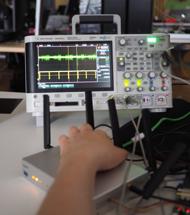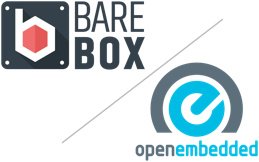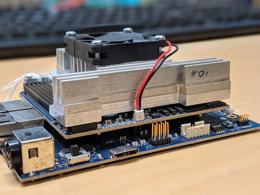Foster mvebu Support in barebox
barebox works great on NXP's i.MX platforms. While there is some support for Marvell's mvebu platform, it is not even near being complete. The main limitation is in my eyes that there is no code to initialize RAM settings on these machines.
On mvebu the native bootable image consists of (usually) two parts. A so-called binary header and a main image. The first one is responsible to setup RAM and after that the boot ROM copies the main image to RAM and jumps into it. Up to now (as of barebox 2019.06.0) you have to dissect a working "vendor image" (usually U-Boot), get the binary header from it and reuse this for barebox. This is ugly for several reasons: It complicates compilation and license conformance and so lacks all the nice properties of open source software.
During the annual Pengutronix Techweek I resolved to work on this shortcoming. My plan was to borrow the code to setup RAM from vanilla U-Boot to get my Turris Omnia run barebox. Back in 2017 I already worked on this machine and was able to chain load barebox from U-Boot which is a good condition to work on native booting.
In the end there were too many obstacles however and I ended up doing preparatory work only:
- debug and repair second stage booting (commit 1, commit 2)
- rewrite mvebu image tool to take all relevant parameters via the command line (commit)
- fix barebox' build system to rebuild the final image when the binary header changed (commit)
- some research why booting via UART is not as reliable as it should be.
Even when I come around to port the RAM init sequence to barebox there is still much to do to make barebox useful on Turris Omnia. Fixing networking, access to SATA and flash and adding support for btrfs (which is used in the vendor firmware) will keep me busy for some time.
Further Readings
Bringing Barebox into OE-Core (Yocto)
This blog post chronicles the multi-year journey to get Barebox accepted into OE-Core—from the early attempts to the eventual success in October 2024. Along the way, we’ll explore the technical hurdles we faced, the community discussions that shaped the process, and the improvements we added to both OE and Barebox.DSA in Barebox
The v2022.05.0 Release of barebox introduced initial support for the Distributed Switch Architecture (DSA) Framework. DSA is originally a subsystem from the Linux Kernel, which exposes the individual ports of a network switch IC as virtual network interfaces.
Bootstrapping Arria10 with OpenOCD and barebox
The Arria10 SoCFPGA can boot from multiple sources: SD Card, NAND flash, QSPI flash and eMMC, that can be selected via the BSEL pins. If the bootrom can not find a valid bootloader on that medium, it will fall back to JTAG. So for developing and testing, the BSEL pins can just be set to a medium that is non-existent. In case of bootstrapping, the bootrom falls back to JTAG anyway, as there is no valid bootloader, yet.





